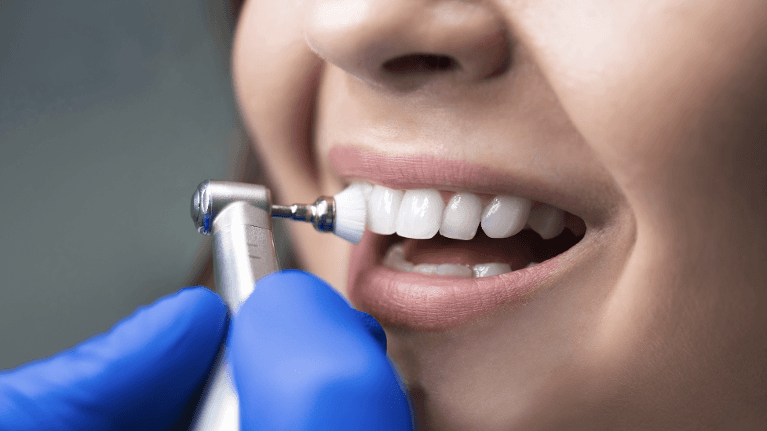
The root cause of bad breath is Halitosis, a bacteria that thrives in oxygen-starved environments. Naturally occurring in various quantities, the bacteria produces byproducts called Volatile Sulphur Compounds (VOCs+), which create bad breath.
An overgrowth of this bacteria will cause a buildup of these VOC compounds, giving bad breath its unmistakable odour. Regularly practising the following tips will keep the bacterial growth at bay, and your breath fresh and VOC-free.
Bad breath is never a desirable thing to have, so we've put together everything you need to combat oral odours below. You can thank the team at our dental practice later for our nifty hacks on getting fresh, clean, breath at all times. Before you need to go to the dentist, here are some tricks to get that bad breath under control.
Scrape your tongue
Incorporating tongue scraping into your daily routine is perhaps the single most effective way to reduce bad odours from your mouth. In fact, some studies have found this reduction to be as high as 75% - a simple act for a drastic result.
The reason why tongue scraping works so well is that it removes the bacteria that are causing unpleasant odours. Halitosis finds a home at the back of the tongue, which doesn’t scrape against the hard part at the front of the mouth, and stays there. The best way to remove it is to regularly use a tongue scraper, gently brushing from the back of the tongue to the front, and rinsing every couple of scrapes to eliminate the bacteria.
Once you do this, it won’t be long before you see a big difference in your breath.
Chew sugar-free gum
A dry mouth often comes with bad breath, as many people find each morning. Without saliva to coat the mouth and bring oxygen to all aspects of it, your body has a hard time battling Halitosis, which thrives in such an environment.
Additionally, saliva naturally has an antibacterial property, which is essential for keeping your oral environment in optimal conditions. Chewing sugar-free gum helps to encourage saliva production (it’s needed when we eat and digest food) - so this simple trick can make a big difference when you’re out and about.
Make sure you’re using a non-alcoholic mouthwash
Many types of mouthwash claim to have an antibacterial effect due to their high alcohol content (some as high as 30%). This can actually have the opposite effect, adding to the creation of bad breath, as alcohol dries out the mouth. A dry mouth is a mouth stripped of its natural supply of saliva’s antibacterial and oxygenating properties - causing Halitosis to continue breeding.
Additionally, the alcohol content can actually lift and carry VOC odours more intensely, much as it does with perfume; creating the opposite of the desired effect.
When should you visit a dental surgery?
If you’ve tried all of the above methods without any good results, you may have a more severe condition at hand.
Visiting a dental surgery can help uncover the cause of this, by examining your teeth, gums, and bone density to check that it’s in prime condition. It's also a good idea to do this regularly to make sure you’re taking good care of your oral health overall.
When in doubt, ask your dentist.



